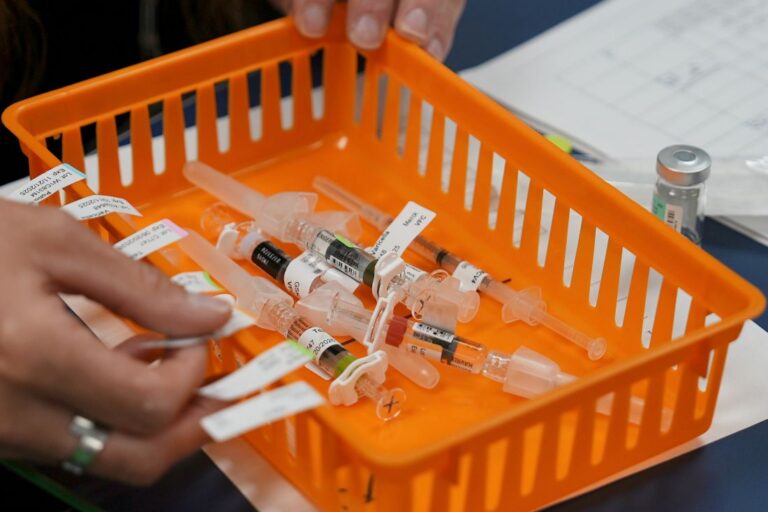On Tuesday, residents of Maine’s 2nd congressional district will vote for their representative to Congress.
Austin Theriault, a former NASCAR driver, won the June primary to clinch the Republican nomination. A relative political newcomer who just finished serving his first term as the state representative for a large swath of Aroostook County, including his hometown of Fort Kent, Theriault will face three-term incumbent Jared Golden, the Lewiston Democrat and Marine veteran.
The fight for the 2nd district will be closely watched across the country and will help determine the balance of power in the U.S. House of Representatives.
The race has attracted a large amount of spending, both from within Maine and from out of state. As of Oct. 16, Golden’s campaign had raised about $6 million in individual contributions, while Theriault had raised $2.7 million.
The Maine Monitor analyzed the most recent campaign finance reports filed with the Federal Election Commission to learn more about where the money came from. Here’s what we found:
In-state vs. out-of-state fundraising
Of the around $6 million Golden raised, $5 million was itemized; of the $2.7 million Theriault raised, $2.4 was itemized. The majority of itemized individual contributions to Golden’s campaign, $4.2 million, came from about 2,700 out-of-state donors, compared to $825,000 from about 1,000 Maine donors.
Contributions to Theriault, on the other hand, are split: He raised $1.3 million from 588 out-of-state donors and $1.1 million from 535 Maine donors.
(The FEC does not require campaign committees to itemize — disclose individual donors’ names, addresses, occupations and employers — for aggregate contributions under $200. However, contributions received through conduits such as ActBlue or WinRed are itemized regardless of contribution size.)
Donors gave big
Donors overall gave big: Less than one percent of the total money raised came from donors who gave less than $200 throughout the election cycle, though more than half of small contributions came from Maine donors.
About 200 donors to Golden’s campaign gave the maximum contribution allowed under federal law — $3,300 in the primary and $3,300 in the general — compared to 149 donors to Theriault’s campaign.
Executives, business owners, retired people
Individuals who said they were retired, not employed, business owners or executives were among the top 10 occupations of donors to both campaigns.
Among the top 10 employers of people who gave the most money, Golden’s campaign was largely dominated by national companies or companies based outside of Maine, while the top 10 employers of contributors to Theriault’s campaign were mostly Maine-based.
Methodology
The Maine Monitor, working with Stanford University’s Big Local News, analyzed Federal Elections Commission data on itemized individual contributions to Jared Golden and Austin Theriault’s campaign committees for the 2023-24 election cycle through Oct. 16. Because the FEC typically takes weeks to process recently filed campaign finance reports, which involves categorizing and coding receipts, processed data was only available through June 30. In order to append the raw data, which was available through Oct. 16, to the processed data, The Monitor filtered out duplicate records and kept only records from individual and organization entities, and contributions from individuals other than political committees and transfers from authorized committees, found on lines 11(a)(i) and 12, respectively, on FEC form 3. The Monitor’s sum totals also account for held or refunded contributions. The Monitor’s data went through several rounds of checks, including with the FEC.
This story was produced with support from the Institute for Nonprofit News’ Rural News Network and the Google News Initiative.







